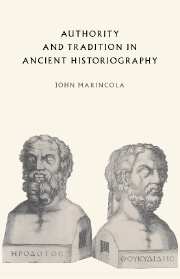Book contents
V - THE ‘LONELY’ HISTORIAN: CONTRAST AND CONTINUITY
Published online by Cambridge University Press: 29 January 2010
Summary
In an aside to his audience after narrating the revolt of the Theruingi and the slaughter of the Roman army under Lupicinus in AD 376, the ‘lonely’ historian Ammianus Marcellinus asks the indulgence of his readers on a particularly difficult matter:
And since after many events the narrative has reached this point, I earnestly entreat my readers (if I ever have any) not to demand of me a strictly accurate account of what happened or the exact number of the slain, which there was no way of finding out.
The rather poignant parenthesis is consistent with the view that Ammianus presents elsewhere in his history of a public at Rome concerned only with the trivial biographies of emperors and caring more for the details of the private lives of the imperial household than with the grand sweep of res gestae. The last antique historian is indeed a great one, and he may even have been as isolated as is sometimes suggested. But in a larger sense, nearly every ancient historian seeks to portray himself as a lonely seeker of truth, as the only one who has somehow understood the historian's proper task, while his predecessors (as he will frequently remind us) failed in the effort, either because they were ignorant and ill-intentioned from the start, or, though men with the proper attitude and application, they did not yet embody all the qualities necessary for a good historian, or live in a time that was suited to their abilities, or assay a task as grand as the one now placed before the reader.
- Type
- Chapter
- Information
- Authority and Tradition in Ancient Historiography , pp. 217 - 257Publisher: Cambridge University PressPrint publication year: 1997



